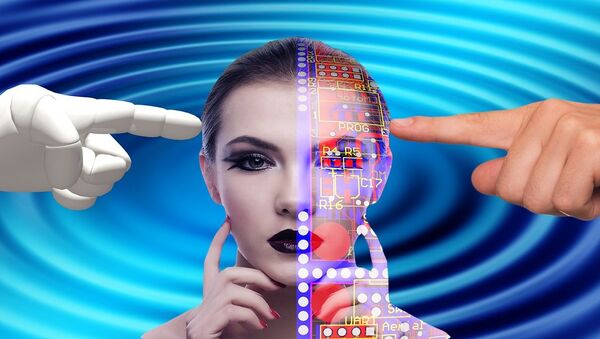The research project, conducted by an international team of roboticists and led by Dr. Elena De Momi of the Politecnico di Milano in Italy, has successfully developed and trained a robot to imitate a range of natural human actions.
A Neural Network-Based Approach for Trajectory Planning in Robot–Human Handover Tasks: Elena De Mom… https://t.co/wyfducGNaf #robotics
— Frontiers RoboticsAI (@FrontRoboticsAI) June 27, 2016
Dr. Momi's project indicates that humans and robots will effectively coordinate their actions for a number of purposes in healthcare, such as the role of hospital nursing, as well as also being able to adapt robotic engineering in order to undertake complex medical procedures such as surgeries.
"Robots can provide assistance in several professional activities in which the robots would not replace human jobs, but simply act as a co-worker or assistant. This is what happens in industrial settings, such as in the automotive manufacturing process in factories where the robot and human can cooperatively work on a common task," Dr. Momi told Sputnik.
According to the published study, the use of robot surgeons in hospitals would in fact lead to major improvements in surgery safety because, unlike their human counterparts, robots would not tire and would be able to complete an endless series of precise movements without the need for any rest.
Already, we are also seeing the advanced use of robotic exoskeletons to enable paralyzed people to walk, as well as rehabilitation of stroke or spinal cord injury patients. This is also showing early indications of how robots will be a very accepted presence in a range of healthcare environments.
"The goal is to replace the wheelchair." A Q&A about exoskeletons with @ProjectMARCH15 #mondaymotivation https://t.co/nFCUuOh23j pic.twitter.com/N9Lfm6raRl
— How It Works (@HowItWorksmag) October 3, 2016
The vision of robots conducting complex medical procedures brings about fears around likely "robot errors" and in such cases, who would be accountable? The robot or the human?
"Robo-ethics is a natural question to ask. Think about the policies that Google cars are adopting in cases of their risk evaluations and rule definitions. In the case of surgical robots, it depends whether the system is autonomous or tele-operated by a human. In the latter case, the error can be of the surgeon, but in the first case and in cases such as system failures for example, the responsibility is of the manufacturer, which should also guarantee top maintenance just as elevator companies do currently," Dr. Momi told Sputnik.
Meanwhile, Japanese scientists are responding to the country's aging population, deemed as one of the biggest in the world, as well as its very low birth rates.
Future tech caretakers replacing family members, as may have once only been imagined in science fiction films, could be in place in Japan by as early as 2020, according to some.
Toyota's Partner Robot Family project, has already developed working models for the care industry, as well as for general domestic housekeeping duties similar to the fictional robot nanny and housekeeper in "The Jetsons" cartoon series.
According to Dr. Elena De Momi's robotics study, the overall goal is to complement human expertise with the skills and benefits of a robot and not to replace them completely.
Responding to Professor Stephen Hawking's previous "doom" premonitions of sentinel robots being able to retaliate against their human allies, Dr. Momi provided a rather cynical response:
"I don't believe in catastrophic scenarios. Unless robots are programed by humans to damage humankind, they are just our assistants. I do however agree with Stephen Hawking's statement that robotic technologies can increase the social inequalities 'if the machine-owners successfully lobby against wealth redistribution,' " Dr. Momi added.



